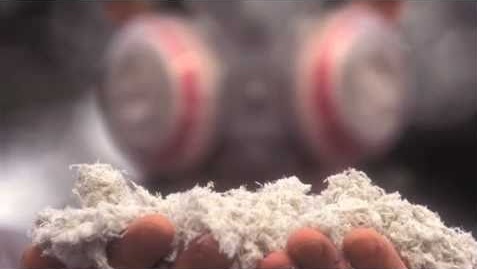 These days, almost all of us are aware of the dangers asbestos can pose, we realize the importance of having a specialist deal with any job which may involve disturbing or removing asbestos. However, the general public’s awareness has not always been as good, which has led to some peculiar myths about asbestos. Here are some of the most common:
These days, almost all of us are aware of the dangers asbestos can pose, we realize the importance of having a specialist deal with any job which may involve disturbing or removing asbestos. However, the general public’s awareness has not always been as good, which has led to some peculiar myths about asbestos. Here are some of the most common:
1) New build properties are free from asbestos.
Don’t assume that because your house or office is a new build that you’re not at risk. A 2014 HSE survey showed that only 15% of people knew that asbestos was still used in buildings up until the year 2000.
2) You can remove asbestos from your system if you act quickly.
An HSE survey showed that 14% of people believe that if they had a drink, after exposure to asbestos dust, they weren’t at risk from asbestosis. Another 27% thought they’d be okay if they opened a window in a room with asbestos dust. This is not true. Anyone handling asbestos must follow strict guidelines to protect themselves, which involves protective clothing, face masks and specialist sealants.
3) Mesothelioma is contagious.
You can’t catch mesothelioma from an afflicted person. However, it is possible to contract it if you share a home with someone who works around asbestos, who unintentionally brings home items which are contaminated with asbestos fibres.
4) If you find asbestos in your home, you must remove it immediately.
As long the material containing asbestos is not damaged, there is no immediate risk to your health. In fact, panicking and ripping it out can cause more harm than good. It is strongly advised to hire a licensed asbestos contractor, who can provide further advice.
5) Wearing a mask means you won’t breathe in any asbestos fibres.
Asbestos contractors wear specialist face masks with filtration, designed specifically to protect them from breathing in the fibres which cause mesothelioma. Simple masks from the DIY shop cannot provide adequate protection.
6) How to really protect yourself from breathing Asbestos:
Asbestos fibers can enter the body through the air we breathe, which is why it’s important to have respiratory protection in case of asbestos exposure. A respirator is a device designed to provide clean oxygen to the people who are wearing or surrounding the device. Here are three examples of respiratory devices used to protect against the dangers of asbestos exposure.
– Air Purifying Respirators
Air purifying respirators clean the air by passing it through a filter before it reaches you. They generally come in the form of a mask that the wearer puts over their face. These respirators either have a mechanical filter for fumes, a chemical filter for vapours, or a combination of both. In order to be effective against asbestos, air purifying respirators must have a minimum efficiency level of 99.97% as certified by the National Institute for Occupational Safety and Health (NIOSH).
– Supplied Air Respirator
These respirators provide clean air to the wearer through a mask that is connected by a hose to an external air source. A supplied air respirator is more secure than an air purifying respirator and thus is worn in more severe cases of asbestos exposure. All supplied air respirators must meet relevant health and safety standards if they are to be used.
– Self-Contained Breathing Apparatus
These respiratory devices involve a portable oxygen supply that is placed on the wearer’s back. Oxygen is supplied directly to the wearer via a portable tank. While this respiratory device is the most effective against airborne toxicity, it is also more cumbersome and therefore not always suitable for asbestos abatement procedures.
When asbestos is disturbed, particles are released into the air that can affect anyone who breathes them. While respiratory devices may provide temporary relief, the only permanent solution to asbestos exposure is to have it professionally removed. For more information about our professional asbestos abatement procedure and/or to have your property inspected for asbestos, contact Urban Environmental today at Certified Asbestos Removal and Restoration.
On average, about 200 people per week are currently falling victim to asbestos related diseases. Thankfully, as awareness about the danger of asbestos grows, and knowledge of risk reduction increases, the number of fatalities should fall.
Urban Environmental has fully trained and experienced staff to help you deal with asbestos in your British Columbia office or home, leaving you to enjoy your environment with the peace of mind you deserve.



